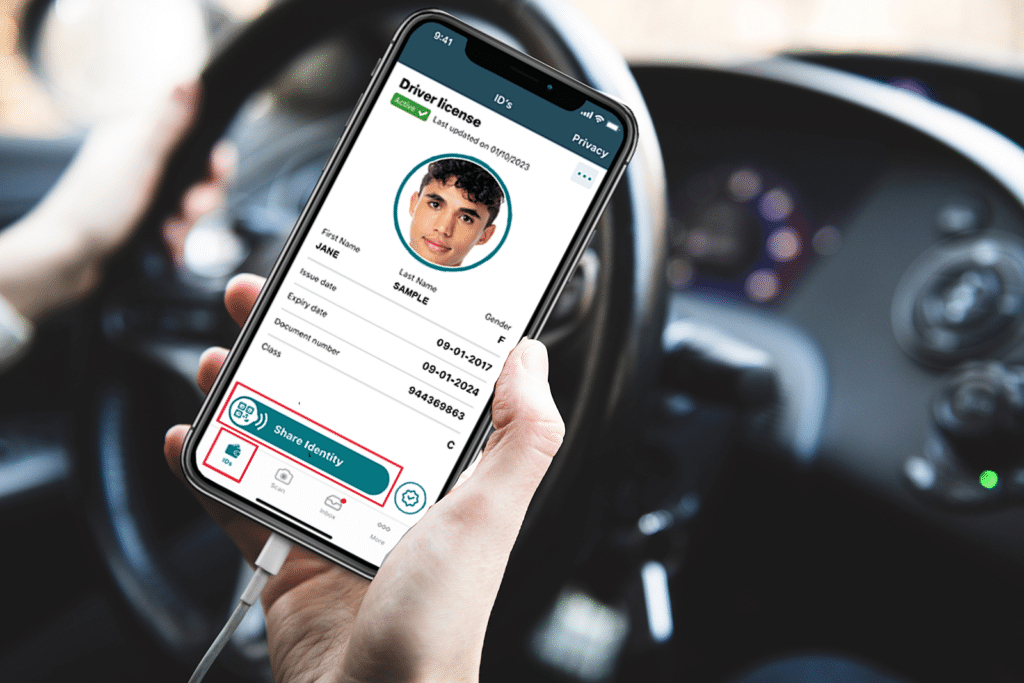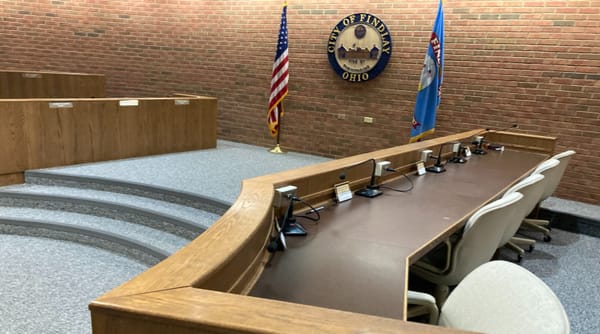Ohio Bill Could Allow Digital IDs for Voting, Sparks Concerns

COLUMBUS — A proposed bill in the Ohio House is raising concerns about digital identification and its potential impact on state elections. House Bill 78, introduced by Republican Rep. Thomas Hall, seeks to allow the use of digital driver’s licenses and state identification cards, including for voting. Opponents of the legislation state concerns over surveillance, privacy and data security.
The bill, co-sponsored by Democrat Rep. Joe Miller and Republican Reps. Gary Click and Josh Williams, would include digital IDs as a valid form of photo identification under Ohio law. The legislation is being met with resistance from both parties, with critics arguing it could compromise election integrity and raise significant privacy and security concerns.
At the center of the controversy is the potential use of digital IDs in elections. As the bill is written, digital driver’s licenses or state IDs would be accepted as photo identification for voting. Ohio currently requires voters to present a valid photo ID when voting, and HB 78 would explicitly include digital IDs in that definition.
“This bill could have a major impact on our elections, and the risks are too high,” said Mark Pukita of GFI Ohio. “The rush to push this through without proper safeguards could undermine the integrity of our voting system.”
Critics of the bill worry about security and privacy concerns, pointing to the broader implications of a digital ID system that could be used for tracking and monitoring residents. While HB 78 includes provisions that limit access to personal information on the digital ID — only identity information such as name, photo, and address would be visible to election officials — concerns remain about the possibility of data breaches or unauthorized access. The storage of personal data on digital platforms also raises the risk of hacking or cyberattacks, potentially exposing sensitive information like birth dates and addresses.
“Digital IDs could be a tool for surveillance, allowing both governments and private companies to track individuals' movements and activities,” said a privacy advocate. “That opens the door to misuse and could undermine fundamental privacy rights.”
Some on the left are additionally opposed to the bill due to concerns over disenfranchisement. Digital IDs could exclude certain populations who lack access to the technology needed to use them. Older adults, individuals in rural areas, and people without smartphones or reliable internet access may find it difficult or impossible to use digital IDs, leading to disenfranchisement.
The bill’s supporters, however, argue that the legislation would modernize Ohio’s identification systems, providing convenience and efficiency for state residents. Proponents also emphasize that the digital IDs would be verified and valid, ensuring they are not expired, revoked, or suspended before being accepted for voting.
Despite the bill’s backing, it has sparked an unusual mix of support and opposition from both sides of the aisle. Of the 11 co-sponsors, five are Democrats, including House Minority Leader Allison Russo, a rare alignment in a state where election-related bills often follow party lines.
“This legislation has the potential to improve our election processes,” said one of the bill’s co-sponsors. “Digital IDs are a step toward a more secure and streamlined system.”
However, critics contend that the bill is being rushed through without adequate review. They argue that Ohio’s election system still has significant security vulnerabilities, citing previous issues with election infrastructure. A past video on Ohio’s election integrity issues, released by local advocates, highlighted flaws that critics say have yet to be addressed.
While digital IDs are designed to offer convenience, they also bring with them the risk of exclusion for those without access to the necessary technology, the potential for surveillance, and concerns about the centralization of sensitive data. If not properly protected, a digital ID system could lead to identity theft, fraud, and unauthorized access to personal information as well as intrusion into the personal lives of citizens and a violation of civil liberties.
As the bill advances, advocates for election integrity are mobilizing. Many are urging Ohio residents to take action by contacting their legislators and voicing opposition to the bill. Public calls to action are expected in the coming days, urging voters to voice their concerns before the bill moves forward in committee.
Opponents stress that the potential convenience of digital IDs does not outweigh the risks to election security. They are calling for the bill to be completely rewritten rather than amended, fearing that any compromise could still leave the door open for significant risks.
“This bill must be stopped,” said an Ohio activist. “The integrity of our elections is far more important than the convenience of a digital driver’s license.”




